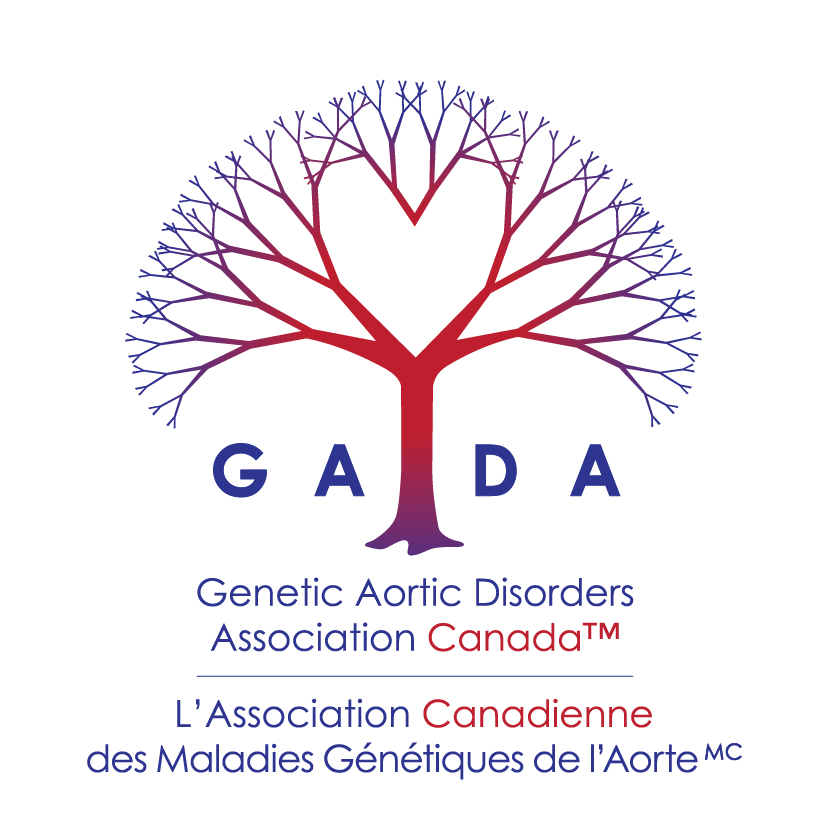Importance of Family Genetic Testing
~Written in 2017 by Jill Valer
The night of December 10, 2014, I had just gone to bed and was awoken with a sharp pain in my jaw which went right down my left side. Then my leg felt like it was asleep until eventually it was a dead weight and I couldn’t walk. I called 911 thinking I was having a stroke. I was taken by ambulance to my local hospital in Richmond Hill. A cat scan revealed I had suffered an acute aortic dissection. I was immediately transferred to Sunnybrook Hospital and went into emergency surgery. After 12 hours in surgery my ascending aorta was repaired along with a mechanical valve inserted. I am lucky to survive the aortic dissection!
I was adopted as a baby and had no medical history. In the early part of 2014, after both of my adoptive parents had passed away, I decided to search my medical history and birth parents. I discovered aorta issues in my biological family. At that point my cardiologist did an echocardiogram and my aorta measurements were documented as moderate to severe. I was scheduled for a cat scan to get a better image. But, before I could do my cat scan, my aorta dissected.
After my dissection I went through genetic testing and it was discovered I had Loey’s-Dietz Syndrome with SMAD3 mutation. At this point my husband and I decided to do genetic testing for our two children as they had a 50% chance of inheriting this condition. My 15-year-old son did not inherit the condition, but my 17-year-old daughter did. Although this was a shock to all of us we are glad that my daughter knows so that she can be monitored from now on. I would not want anyone to have to go through what I did by not knowing this could happen.
Since all of this is so new to me and my family, as I was only diagnosed in 2015, I am grateful there is a group like GADA to gain insight and knowledge about aortic disorders. I can’t stress enough how important it is to do the genetic testing so that an emergency surgery can be avoided. I currently have no other symptoms of Loeys-Dietz Syndrome and remain healthy.
